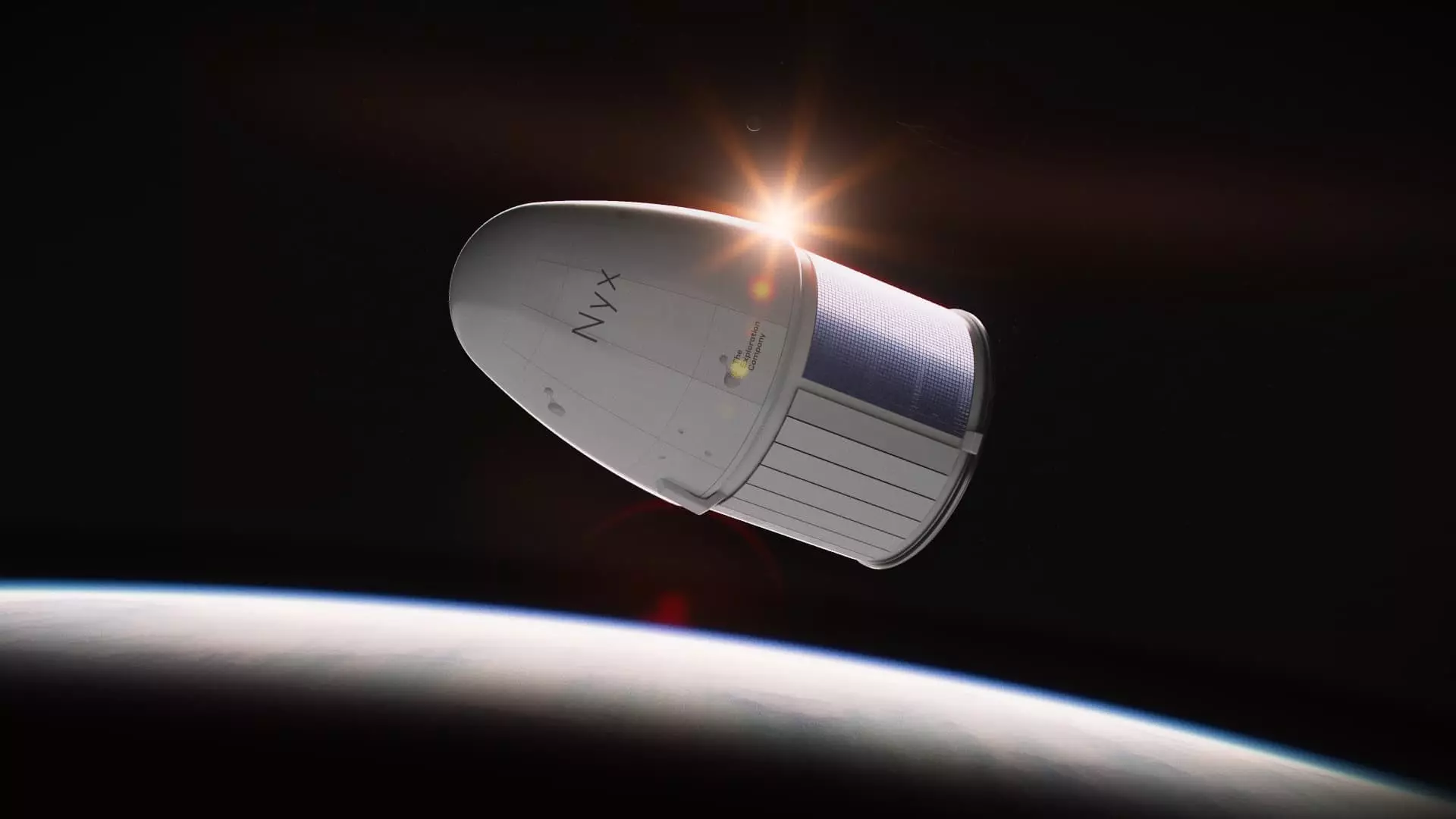The Exploration Company (TEC) has made significant waves in the aerospace industry by securing a remarkable $160 million in funding aimed at enhancing the development of its innovative space capsule, Nyx. This recent influx of capital, gathered from prominent venture capitalists Balderton Capital and Plural, alongside support from government-backed funds like French Tech Souveraineté and DeepTech & Climate Fonds, underscores a growing investor confidence in the burgeoning space sector. As space exploration continues to capture the public’s imagination, TEC’s vision represents not only private enterprise but also a collaborative effort to propel Europe into the competitive orbit of extraterrestrial transportation.
Nyx: A Leap Towards Reusable Technology
At the forefront of TEC’s ambitions is the Nyx capsule. Designed to ferry both astronauts and cargo to space stations, Nyx embodies the future of space travel by being reusable. This capability allows the capsule to return to Earth after its mission, ready for another journey, thereby addressing one of the significant challenges faced by the industry—minimizing costs and waste associated with single-use vehicles. Hélène Huby, the founder and CEO of TEC, optimistically notes the expanding market for space logistics, attributing an annual growth rate of over 10% to increased global interest in space missions. Countries around the world are investing in their space capabilities, heightening the demand for reliable transportation solutions to the various emerging space stations.
Market Dynamics and Competition
Currently, the space transportation market is seeing an influx of players, but the landscape remains sparsely populated. Established enterprises like SpaceX with its Dragon capsule dominate the field, while challengers from nations such as China and Russia also vie for their share of this competitive market. Huby’s insight into the necessity for Europe to establish its own independent space transportation capability reflects a critical trend as international space traffic intensifies. “We cannot solely rely on SpaceX,” she emphasizes, advocating for a diversified approach to space explorations, something that could prove essential as the number of missions grows.
TEC is currently hard at work on the second iteration of Nyx, eyeing a test launch next year, with a final version projected for 2028. This ambitious timeline includes substantial support from the European Space Agency, indicating a robust partnership for fostering innovation in the Euro space sector. Furthermore, Huby’s claims of securing $800 million in contracts with various entities, including the emerging Starlab space station and Axiom Space, illustrate the symbiosis between commercial interests and technological advancement in this burgeoning field. These agreements not only stabilize TEC’s financial footing but also expand its operational scope, positioning the company at the forefront of logistical support in space.
The current landscape of international space exploration is marked by increased activity by nations such as China, the U.S., and India. Projects like NASA’s Gateway, which will serve as a lunar orbital space station, encapsulate the ambitious vision of future space architecture. Huby’s assertion that as more people venture into space, the demand for cargo will reciprocally grow delineates a clear and present need for efficient space transportation systems. TEC’s Nyx capsule is projected to play a pivotal role in bridging that gap by not only facilitating human transport but also ensuring successful payload deliveries.
The Exploration Company’s endeavors represent both a pivotal moment for European aerospace and a broader shift in global space transportation. With its innovative Nyx capsule, TEC is not merely participating in the space race but is actively steering its course. The infusion of investment, coupled with strategic partnerships and a progressive outlook towards reusable technology, positions the company to potentially become a key influencer in the future dynamics of space exploration. As nations increasingly focus on their space agendas, TEC’s role could be significant in laying the groundwork for a new era in sustainable and accessible space travel.

